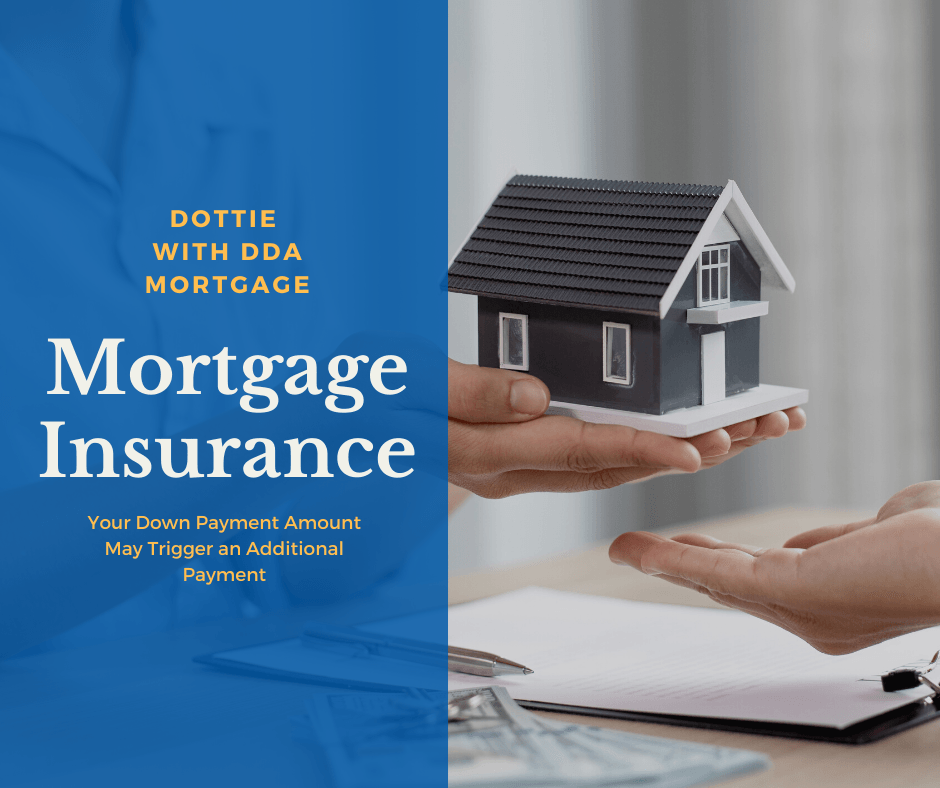Your Down Payment Amount May Trigger An Additional Payment, Mortgage Insurance.
Many of my clients are surprised that they are required to pay an extra expense included into their mortgage payment known as mortgage insurance. Fortunately, you don’t always need to carry mortgage insurance. Below we discuss when you need it, the different types of insurance, and how to drop mortgage insurance. If you are trying to lower your monthly payments or are planning to buy a house, you need to know this information before making a down payment decision!
Let’s start with the basics.

Mortgage insurance is an insurance policy that protects the lender in case the homeowner defaults on the payments or can no longer meet the contractual requirements of the mortgage. If you fall behind, your credit score will suffer and you may lose your home through foreclosure. The premium is part of your monthly mortgage payment. This type of insurance does not protect the borrower/buyer/homeowner, only the lender.
When do you need mortgage insurance?
The type of mortgage insurance will depend on the loan program that you will use. For example, Conventional financing will require you to carry mortgage insurance if you are putting down less than 20%. Conventional loans call mortgage insurance PMI, private mortgage insurance which is paid to a private company and are typically paid as a monthly fee although there are other options. For FHA loans you pay the mortgage insurance to the Federal Housing Administration (FHA) and it is required regardless of how much you are putting down. They both work in different ways but have the same protection.
How do the different mortgage insurances work?
Not everyone can put down 20% when buying their home. This is where mortgage insurance comes into play. For Conventional financing the policy premium is based on how much you are putting down, the loan amount and your credit score. There are 4 tiers that affect the premium, 3% down, 5% down, 10% down and 15% down. The more you put down the lower the premium and that works the same for your credit score too, the higher the credit score the lower the premium. FHA requires you to carry mortgage insurance regardless of the down payment. FHA requires a minimum of 3.5% down; however, they have a lower premium and term if you are putting down more than 10%.
When will the mortgage insurance drop off of my payment?
With Conventional financing, the mortgage insurance will remain part of your payment until the loan to value is at 78%. It will automatically drop off but you may want to contact your loan servicer to make sure that they are aware. There are a few ways that your loan to value can change. One is paying the loan down over time or with a one-time lump sum and the other might include the home value increasing which will lower your loan to value (LTV) or a combination of these.
FHA financing works a little differently than Conventional. If you are putting down less than 10% then you will be required to pay the mortgage insurance (MI) for the life of the loan. The only way to remove it is to pay off the loan or refinance the loan into a conventional loan product. If you are putting down 10% or more then you will pay a slightly lower premium but will only need to carry the mortgage insurance for 11 years. The premium for FHA is the same regardless of the credit score; however, FHA has a one-time upfront fee of 1.75% of the base loan amount. This can be paid as part of the closing costs or rolled into the loan amount. Majority of the buyers roll it into the loan amount as it doesn't make a huge difference in the payment when it is amortized over 30 years.
Next Steps
Simple decisions like choosing an FHA Loan, VA Loan, Conventional Loan, and down payment decisions can mean saving 10s of thousands of dollars or losing 10s of thousands of dollars over the life of your loan. Talk to your mortgage broker about PMI before locking in any contract. If you don’t have a broker or lender to talk to, give me a call
(727) 543-1753.
To learn more about me, Dottie Spitaleri, visit
https://www.ddamortgage.com/dottie.
Start Your Loan
with DDA todayYour local Mortgage Broker
Mortgage Broker Largo See our Reviews
Check out our other helpful videos to learn more about credit and residential mortgages.





